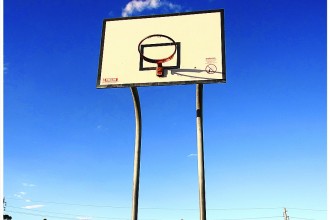Charting the fine line between poetry and music
Interviewed by Omri J. Luzon
M. L. Liebler is an internationally known & widely published Detroit poet, college professor and literary arts activist. He is the author of 13 books including the award-winning ‘Wide Awake in Someone Else’s Dream’ (Wayne State University Press 2008) featuring poems written in and about Russia, Israel, Germany, Alaska and Detroit. Wide Awake won both The Paterson Poetry Prize for Literary Excellence and The American Indie Book Award for 2009. In 2005, he was named St. Clair Shores’ first Poet Laureate. In 2010, he received The Barnes & Noble Poets & Writers Writers for Writers Award with Maxine Hong Kingston & Junot Diaz.
In this intimate interview, TMS Senior Articles Editor Omri Luzon sits down with Mr Liebler to discuss his world view, work and his thoughts on the world as he sees it.
What is the first thing you look for when you open a fresh new book?
I like my books like Woody Allen films: SHORT under 200 pages if possible.
What time of day is best for your writing?
Very, very early in the morning until about 9am ish-that’s when the muse leaves town.
Why have you chosen to use music as part of your presentation?
I started to add music to get first time listeners to give poetry a chance. Coming from a non-intellectual or artistic background, I wanted to help people take an interest in the arts. Music is a universal language, that added to anything [really] creates something new and different.
I think we can safely say that what you do in your readings is unique. What has the response been?
People have always responded well to what I do since I started [in the mid 70s]. When first-time poetry audiences tell me that they had no idea that poetry could be so accessible, I knew I was doing it right.
You’ve cooperated with The Magic Band, Al Kooper, Country Joe McDonald, The High Strung, and more. Are you sure that you are a poet and not a musician in disguise?
I am very conscious of remaining a poet. I tend to walk the fine line between the spoken word and singing. I like audiences and listeners to question the experience. There are thousands of rock bands and musical artists, but there are only a handful of “poetry bands.†It’s smart business, so to speak.
“The politics of Detroit / Go beyond arguing fresco vs. classic, / Or any something vs. anything.†(Save the Frescoes That Are Us). What role have your political views played in your work? Should politics play a part in poetry?
My poetry deals with both the politics of living and society, and spirituality and God. I happen to see common ground between these two concepts, and that is exactly where The Catholic Worker Movement fits in for me. The movement feeds both my political views and interests and my need for God in my life.
“So, while I would really love
To write a poem for Allen Ginsberg,
Like everyone else, right now
It seems more important for me to capture
My neighbor’s life,â€
There are seeds of revolution in your words, revolting against the conservative idea of poetry, the academic approach, the high ideal of poetry. What is poetry’s relation to an average person?
The job of the poet is to bring the truth to his/her society, neighborhood, community or at least offer different views on culture, issues and politics, so listeners and readers can discover new ways of looking at life and all its issues.
What is the importance of poetry in your eyes?
I’m going to quote Allen Ginsberg here: “to ease the suffering of everyday life for people…all else is a drunken dumb show.â€
Do you think art can make an impact on the world?
Art can change everything and open people’s minds to the “new.†They just need a way to feel comfortable with this idea. I think music helps make it easier and real for folks.
They say that poetry is being marginalized, do you think it has something to do with the heavy connotation that accompanies the word Poetry, or is there something else going on?
Poetry in America has always been marginalized. Poetry gets people to think outside the box. Once folks start thinking outside the box, the next thing they do is question those in authority who hold control over their lives. I always tell my students that “poetry and coffee are dangerous and lead to revolutions.†This scares the hell out of those in power, so they’ll always try to squash and marginalize it.
Emerson said an individual should develop his thoughts, even if they contradict one another. There’s a bit of a contradiction about you – on the one hand the idea of the academic life, on the other the poetry and art that deal with revolting against academia. How do the two sit together?
That’s an interesting question. My life’s been a contradiction on so many levels, but it all adds up to a very interesting experience. As an artist I’m interested in the randomness of everything but I also live a very organized and mundane life. I’ve been with the same woman since I was 14, lived in the same neighborhood, etc. I think George Harrison (The Beatles) said it best:
Sometimes my life it seems like fiction
Some of the days it’s really quite serene
I’m a living proof of all life’s contradictions
One half’s going where the other half’s just been
Next up for the artist/poet is the memoir Hound Dog: A brief memoir of Rock, Revolution & Grace, a collection of new and selected essays entitled Underneath My American Face: Poems, Stories and Essays and a new audio CD with Moby Grape’s Peter Lewis, Coyote & The Monk due this summer.





